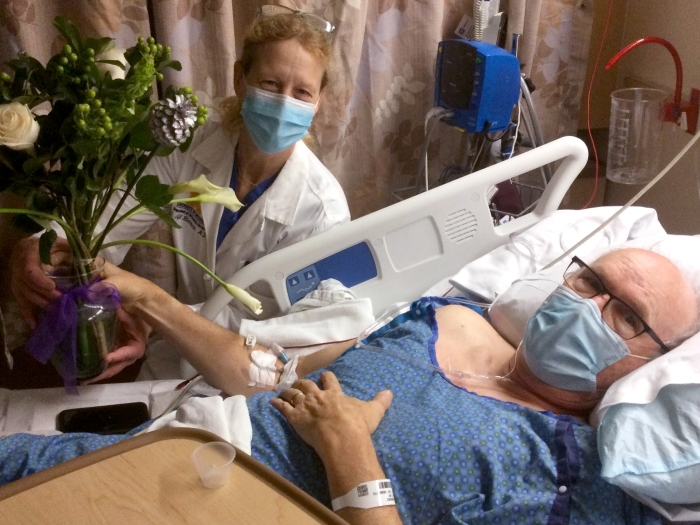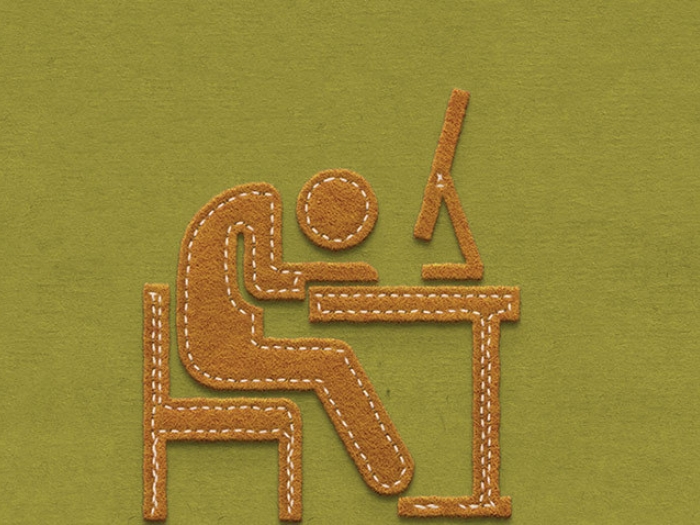Ten minutes of conscious breathing every day can transform your ‘fight or flight’ reactions. Here’s what to do.
11:39 AM
Author |

Stress is something that we can't entirely take out of our lives, and, in some situations, it is very important. Who hasn't felt the stress of a project, paper or deadline, found some motivation to complete the task and then felt a wave of accomplishment?
That motivation and slightly elevated level of anxiety helps us finish tasks. Elevated levels of stress over a long period of time, however, can cause problems for the body — cardiovascular issues; weight gain; sexual dysfunction and fatigue — as well as the mind — difficulty concentrating; problems with memory; increased feelings of depression and sadness.
How the body handles stress
To better understand stress and how to regulate stress, it is helpful to understand the way our brain and nervous system operate.
The autonomic nervous system is a part of the peripheral nervous system and is responsible for activities that are involuntary. For example, in a threatening situation the sympathetic branch of the ANS causes increased heart rate and blood pressure, pupil dilation, dry mouth and sweating in order to ready the body for "fight, flight or freeze."
The parasympathetic branch is involved in the conservation of energy and is active during digestion and periods of rest and relaxation. The two branches work cooperatively to help keep us safe, and at the appropriate times, calm. Unfortunately, our brain doesn't always recognize the difference between dangerous stressors (you are faced with a mother grizzly bear and need to escape), and stressors that are less threatening (you have to give a presentation at work).
In both settings, the body may engage in hyperarousal symptoms activated by the sympathetic branch. This explains why you may have to use the restroom rather quickly before a work presentation, a big game or before a highly anticipated first date.
Luckily, we have ways to foster the relaxation response by activating the parasympathetic branch through hypnosis, meditation, biofeedback and diaphragmatic breathing.
Breathing for stress relief
Diaphragmatic breathing is an excellent relaxation technique. Benefits of this form of deep breathing include:
-
Activation of the relaxation response. Diaphragmatic breathing calms the nervous system and releases tension in the body. It also reduces stress hormones in the body. By releasing endorphins, the body relaxes, and you feel more comfortable.
-
Boosts energy and increases vitality. As you breathe deeply, you increase your energy levels and allow fresh oxygen and nutrients to be distributed to your cells. This helps the brain and organs function at an optimal level.
-
Strengthens the immune system. Deep breathing from the abdominal region helps prevent infection in the lungs and other tissues.
-
Improves the circulatory system. Diaphragmatic breathing increases blood circulation and helps with returning blood to the heart.
Helps with digestion. Massages the internal organs as the diaphragm moves up and down with each breath.
Get started
Follow these simple steps to try diaphragmatic breathing.
-
Find a comfortable and quiet place to begin your practice.
-
To aid with relaxation, close your eyes and focus on only your breathing.
-
As you breathe in, your belly should push out. Breathe in for a count of four.
-
As you breathe out, draw your belly in. Slowly and gently exhale to a count of six.
-
You can breathe in thinking of the word "relax." As you exhale think of the word "peace," "calm" or any word you choose.
-
Allow yourself to enjoy the sensation of relaxation that comes over you as your breathing slows and you allow tension to leave your body.
-
Begin each day with 10 minutes of deep breathing.

Explore a variety of healthcare news & stories by visiting the Health Lab home page for more articles.

Department of Communication at Michigan Medicine
Want top health & research news weekly? Sign up for Health Lab’s newsletters today!





